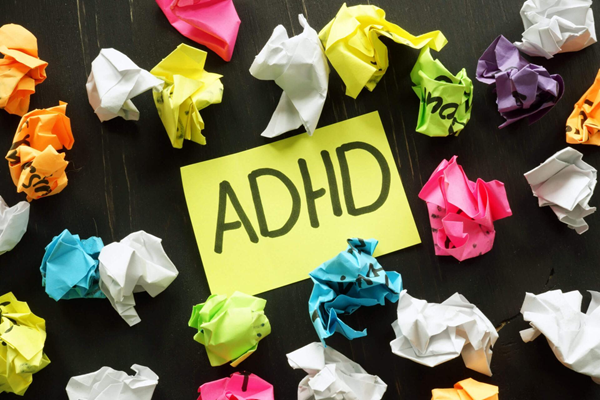How Does Cannabis Improve Symptoms of ADHD?

Attention Deficit Hyperactivity Disorder (ADHD) affects millions of people worldwide, making it challenging to stay focused, calm, and organised. While traditional treatments, such as stimulant medications and behavioural therapies, have shown success for many, a growing number of people are turning to medical cannabis for relief. But how does cannabis impact ADHD symptoms, and is it an effective choice for managing the condition? In this post, we’ll explore the potential benefits and challenges of using cannabis to alleviate ADHD symptoms.
Understanding ADHD and its symptoms.
ADHD is a neurodevelopmental disorder that typically appears in childhood and can continue into adulthood. It affects attention, executive functioning, and impulse control, leading to symptoms such as:
- Inability to focus or easily distracted
- Hyperactivity and impulsive behaviour
- Forgetfulness and disorganisation
- Challenges in completing tasks
These symptoms vary greatly from person to person, and ADHD can impact school, work, and personal relationships. Standard treatments like stimulants (such as Adderall and Ritalin) are often prescribed, but these can have side effects like insomnia, loss of appetite, and mood swings. This is why some people have shown interest in cannabis as a complementary or alternative therapy.
The science behind cannabis and ADHD symptoms
Cannabis contains cannabinoids, primarily THC (tetrahydrocannabinol) and CBD (cannabidiol), which interact with the body’s endocannabinoid system (ECS). The ECS regulates various functions such as mood, focus, and memory, all of which can affect ADHD symptoms. Here’s how these cannabinoids could potentially improve ADHD symptoms:
- Focus and Attention
- Some strains of cannabis, particularly those high in THC, may stimulate the brain in a way that boosts focus and reduces distractions. Many with ADHD report that certain cannabis strains help them “zone in” on tasks, similar to how stimulant medications work.
- CBD, on the other hand, doesn’t cause a high, but it has calming effects that may help those with ADHD improve their focus by reducing stress and anxiety, which are common co-conditions in ADHD patients.
- Calming Hyperactivity
- CBD, known for its anti-anxiety and calming effects, may help reduce hyperactivity and impulsivity in individuals with ADHD. A relaxed mind and body can make it easier to handle the impulsive behaviours often associated with ADHD.
- By activating certain receptors in the ECS, CBD might also modulate dopamine release, helping to reduce impulsive behaviours and providing a sense of calm without the side effects associated with traditional stimulant medications.
- Improving sleep and mood regulation
- ADHD can often disrupt sleep patterns and contribute to mood swings. Researchers have found that THC aids in promoting deeper sleep, while CBD may help stabilise mood, alleviate mood swings, and reduce irritability.
- Better sleep and mood stability lead to improved focus and energy levels, helping people with ADHD navigate their day with more resilience and attention.
- Regulating Dopamine
- People with ADHD typically have lower levels of dopamine activity. Stimulant medications for ADHD increase dopamine levels in the brain, but some people find that cannabis may offer a more natural approach. By stimulating dopamine release, cannabis could help those with ADHD manage their symptoms without the jittery side effects of stimulants.
Choosing the right strain and dosage
When it comes to using cannabis for ADHD, choosing the right strain and dosage is crucial. Certain strains are better suited for enhancing focus and energy, while others may have a calming effect that is more beneficial for reducing anxiety and impulsivity.
- Sativa-dominant strains are often associated with boosting energy, focus, and creativity, making them a better choice for daytime use if focus is a challenge.
- Indica-dominant strains can have a calming effect, which might help with hyperactivity and impulsivity, as well as improving sleep quality.
- Hybrid strains offer a balance of effects, so they may suit those who need a bit of both focus and calm.
Since everyone’s reaction to cannabis varies, it’s wise to start with a low dose, especially with THC, and adjust as needed. Micro-dosing, taking tiny amounts of cannabis, can also be effective, offering relief without the psychoactive effects associated with larger doses.
Potential Downsides and Considerations
Cannabis, while beneficial for some, is not a universally applicable solution. Possible downsides include:
- High-THC strains can cause side effects like drowsiness, dry mouth, or paranoia.
- Many places still classify cannabis as a Schedule I drug, which restricts extensive research on its impact on ADHD.
- Dependency risk: Chronic cannabis use can lead to dependence in certain individuals.
- Legal concerns: Laws around cannabis vary widely, so it’s important to consider the legal implications depending on where you live.
Final Thoughts: Is Cannabis Right for You?
If you’re considering cannabis for ADHD symptoms, it’s important to consult a healthcare professional, especially if you’re already on prescribed medications. They can help guide you toward an approach that minimises risks and optimises benefits.
For many with ADHD, cannabis may offer a unique approach to symptom management, potentially alleviating hyperactivity, impulsivity, and mood fluctuations. Initial findings and user testimonials suggest that cannabis could serve as a viable alternative or complement to traditional ADHD treatments, despite the need for further research. However, remember that what works for one person may not work for another, and close observation of how cannabis affects your symptoms is key to finding the right balance.


